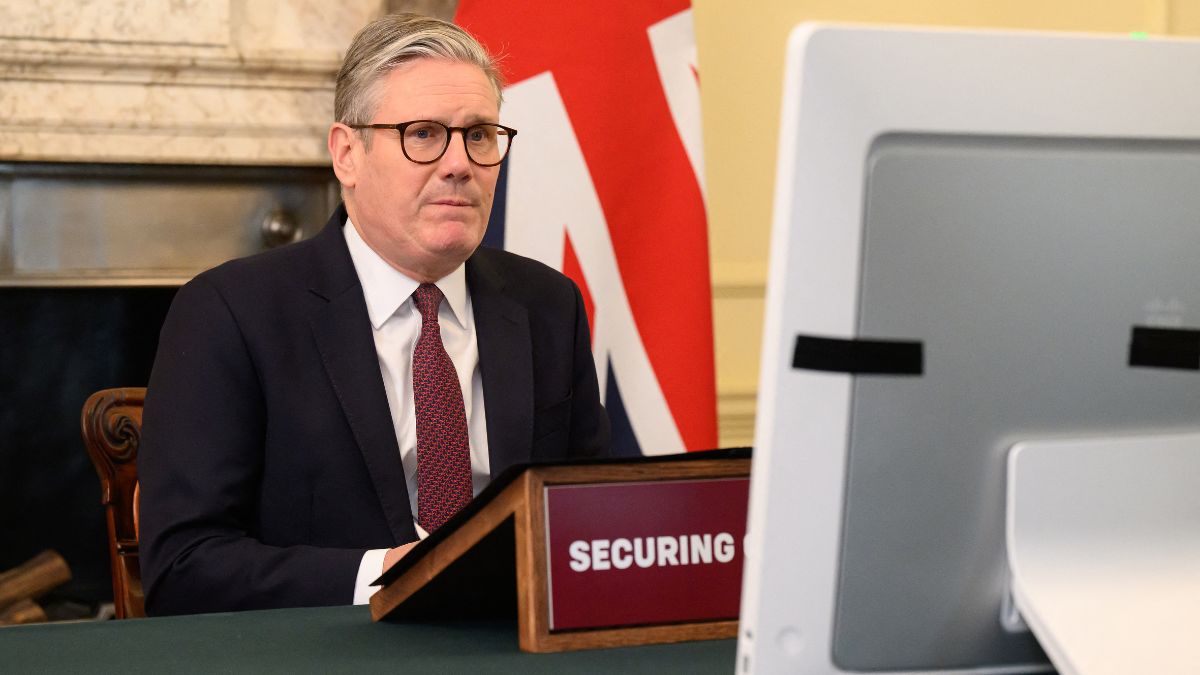The UK’s inflation rose unexpectedly in June to 3.6 per cent, marking the highest annual rate since January 2024, according to the Office for National Statistics (ONS). The rise was attributed mainly to high food and motor fuel costs, with analysts having predicted inflation would remain unchanged from May’s rate of 3.4 per cent.
ONS acting chief economist Richard Heys said that fuel prices fell less sharply this year compared to June 2023, contributing to the inflationary pressure. He also noted that food price inflation rose for the third consecutive month, reaching its highest level since February 2024.
Economic woes pile up for Starmer’s government
The inflation data followed another worrying signal: the UK economy contracted for a second month in May. This dual blow has amplified the challenges facing Prime Minister Keir Starmer, who is now contending with both economic stagnation and intensifying political pressure.
Finance Minister Rachel Reeves acknowledged the strain households are under, saying that “there is more to do” to support people struggling with the cost of living. However, critics argue that government measures have not kept pace with the financial realities facing many households, especially the least well-off.
Living standards stagnate despite rising wages
While the government points to wage growth — hovering around 5 percent—as a sign of improvement, new analysis suggests that many Britons are seeing little benefit. Bloomberg reported that discretionary incomes fell by 4.2 per cent in April and remained flat in May, making this period the worst for household finances since the energy price shock in 2022.
Data from Retail Economics showed that incomes have dropped 7.5 per cent since Labour came to power in July 2024, with lower-income groups hardest hit. Nicholas Found, head of commercial content at the firm, told Bloomberg that unavoidable costs such as council tax, rail fares and utility bills have eaten into earnings, negating recent wage increases.
Labour’s tax policy adds fuel to the fire
The government’s stance on income tax thresholds has further fuelled discontent. Prime Minister Starmer has not ruled out extending the freeze on tax brackets — a policy initiated under the previous Conservative administration and scheduled to last through 2028.
According to the Resolution Foundation, this fiscal drag is likely to wipe out much of the wage growth for middle-income earners, and could even result in a decline in real take-home pay once local levies like council tax are factored in. These policies have sparked criticism from voters and analysts alike, who view them as regressive during a period of widespread financial strain, the Bloomberg report said.
Impact Shorts
More ShortsReform UK capitalises on discontent
As economic conditions tighten, Labour is facing growing political backlash. Populist party Reform UK, led by Nigel Farage, has overtaken Labour in some opinion polls by promising tax relief and more direct support for working-class voters. The surge in support for Reform reflects the fragility of Labour’s mandate and the growing frustration with mainstream policy responses.
Despite the government’s insistence that rising wages mean Britons are better off, polling and spending data suggest otherwise. Lancaster University’s Work Foundation found that one in six workers are struggling to pay monthly bills, and fewer than half believe wage growth is keeping up with the cost of living. The same survey found that nearly 10 per cent more people now hold second jobs compared to a year ago, reaching record highs, as families turn to gig work and side jobs to bridge income gaps, Bloomberg reported.
Bank of England faces a tightrope on interest rates
While the inflation rise could normally signal a need to hold or raise interest rates, economic sluggishness may force the Bank of England to ease policy anyway. Ruth Gregory, deputy chief UK economist at Capital Economics, suggested that the Bank may still cut rates by 25 basis points in August, given the broader weakness in growth. However, she also warned that the latest inflation figures will likely prompt a slower, more cautious rate-cutting cycle, AFP said.
Policymakers are especially wary of “second-round” inflationary effects, where higher wages drive further price increases, a cycle that could be difficult to break.
A political and economic crossroads
The unexpected rise in inflation has only intensified the economic and political challenges facing Starmer’s government. While officials continue to highlight wage growth as a sign of progress, many households are experiencing deteriorating living standards, rising taxes and increased debt.
With Reform UK gaining momentum and household budgets under siege, the Starmer administration finds itself at a precarious juncture. The path forward will require not only sound economic management, but a convincing narrative that connects macroeconomic gains with real improvements in daily life. Until then, the pressure will likely keep mounting—from the public, the opposition and the markets alike.
)